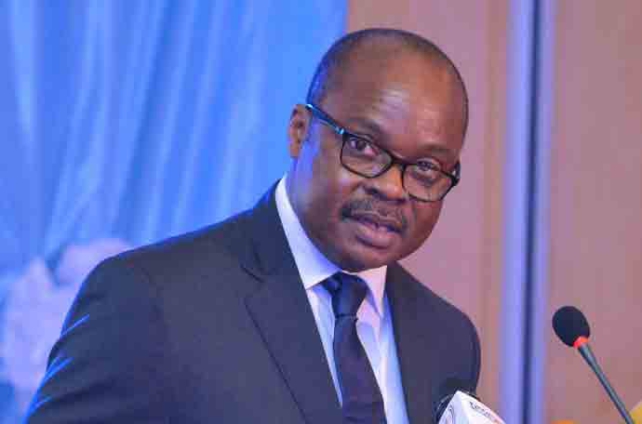The Monetary Policy Committee of the Bank of Ghana (BoG) has kept its key lending rate to commercial banks unchanged.
It held the rate at 30.0% after meeting to review developments in the economy.
Addressing the media, Governor of the Bank of Ghana, Dr. Ernest Addison noted that the action was influenced by the fact that all the macroeconomic indicators are responding to past measures to control inflation.
"Given these considerations, the Committee decided to maintain the policy rate at 30.0 percent. The Committee further indicated that while the expectation is for continued disinflation, it stands ready to respond appropriately should inflation deviate from these broad expectations", he said.
On inflation dynamics, Dr. Addison explained that the continued maintenance of a tight monetary policy stance and relative exchange rate stability have contributed significantly to the disinflation process observed in the year thus far.
He announced that the headline inflation has declined by a cumulative 14.0% since the peak of 54.1% recorded in December 2022.
He added that non-food inflation has also declined sharply by close to 20%, broadly reflecting the effectiveness of monetary policy.
“All core inflation measures, monitored by the central bank are trending downwards, indicating continued easing of underlying inflationary pressures. In addition, one-year ahead survey-based inflation expectations seem well anchored”.
According to the Governor, while the disinflation process has resumed, it is expected to result in a gradual return towards the target band over the medium-term barring unanticipated shocks, rising international crude oil prices and adjustments to utility tariffs.
At the auctions for Government of Ghana securities, the 91-day and 182-day Treasury bill rates decreased marginally to 26.35% and 27.84%, respectively in August 2023, down from 27.68% and 29.12%, in the same month of 2022.
The rate on the 364-day instrument, however, increased to 30.88%, from 28.92% over the same comparative period. All the rates were however negative in real terms, given the rate of inflation.
The rate at which banks borrowed from each other, that is, the interbank weighted average rate, rose to 26.59% in August 2023 from 21.93% in August 2022, in line with increases in the monetary policy rate. Consequently, average lending rates of banks increased to 31.78% in August 2023, from 27.96% recorded in August 2022.
Latest Stories
-
M&S restores click and collect services 15 weeks after systems hacked
32 minutes -
US deficit grows to $291bn in July despite tariff revenue surge
45 minutes -
Judge orders Trump administration to restore part of UCLA’s suspended funding
59 minutes -
Newcastle striker Isak still determined to join Liverpool
1 hour -
Liverpool stepping up bid to sign Palace’s Guehi
1 hour -
Newcastle sign defender Thiaw from AC Milan
2 hours -
Alcaraz secures 50th win of 2025 at Cincinnati Open
2 hours -
Everton complete loan deal for Man City’s Grealish
2 hours -
Spurs leave out Bissouma for persistent lateness
2 hours -
Premier League clubs to pay tribute to Jota and brother
2 hours -
Crystal Palace hit out at CAS and UEFA after losing appeal
3 hours -
British soldiers using sex workers in Kenya despite ban, inquiry finds
5 hours -
Wife of South Korea’s jailed ex-president arrested
5 hours -
Ghana Armed Forces cautions media over speculative reports on helicopter crash
5 hours -
Dr. Omane Boamah swore that neither he nor his family are involved in galamsey – Muntaka reveals
5 hours

